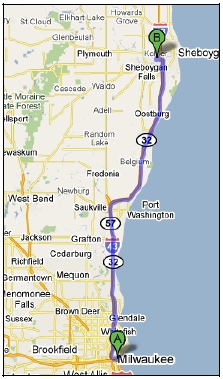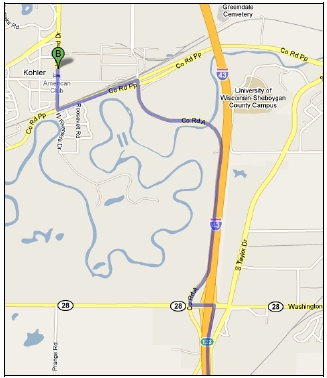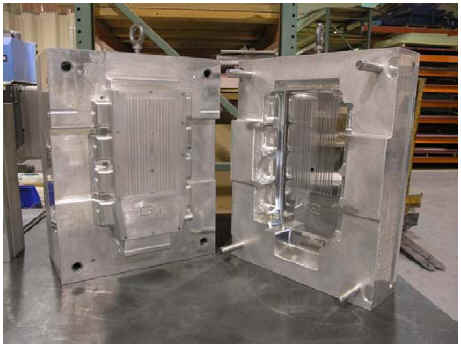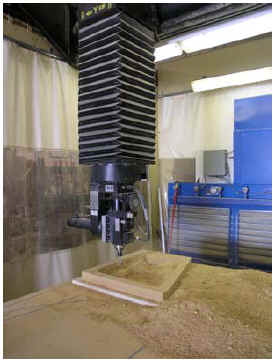Link to May 2010 Newsletter
Author: kcc admin
April 2010 Section Meeting – Kohler Engines
Challenge of Emissions Certification for Small Engine Manufactuers

Kohler, WI
Wednesday April 21st, 2010
TOUR OF THE TEST LAB & TECHNICAL PRESENTATION
Kohler Engines has been manufacturing small engines since 1920. In this long history, the industry has faced many technological challenges, but none may be as far reaching as the changes required on the road to green emissions. The base technology has largely been developed by the automotive industry (water cooled engines), but some of the technology is not directly applicable to the small engine industry for air cooled engines.
The regulatory emissions requirements for small engines read like the Federal Tax Code (or more recently, the Health Care Reform Act). The rules are different for the Environmental Protection Agency (EPA), the California Air Resource Board (CARB), the European Community and for fast developing markets in China and India. The regulations are also different by displacement, by horsepower and by type of applications. An overview of regulations will be discussed in the presentation.
Small engines, like automotive, are regulated to limit the exhaust emissions from the combination of hydrocarbons and oxides of nitrogen (HC +NOx). In most cases, emissions improvements are rooted in the details of the base engine design. Some of these impacted components will be discussed in this presentation.
Challenge of Emissions Certification for Small Engine Manufactuers

Kohler, WI
Wednesday April 21st, 2010
TOUR OF THE TEST LAB & TECHNICAL PRESENTATION
Kohler Engines has been manufacturing small engines since 1920. In this long history, the industry has faced many technological challenges, but none may be as far reaching as the changes required on the road to green emissions. The base technology has largely been developed by the automotive industry (water cooled engines), but some of the technology is not directly applicable to the small engine industry for air cooled engines.
The regulatory emissions requirements for small engines read like the Federal Tax Code (or more recently, the Health Care Reform Act). The rules are different for the Environmental Protection Agency (EPA), the California Air Resource Board (CARB), the European Community and for fast developing markets in China and India. The regulations are also different by displacement, by horsepower and by type of applications. An overview of regulations will be discussed in the presentation.
Small engines, like automotive, are regulated to limit the exhaust emissions from the combination of hydrocarbons and oxides of nitrogen (HC +NOx). In most cases, emissions improvements are rooted in the details of the base engine design. Some of these impacted components will be discussed in this presentation.

Biography: Steve Riese
As Senior Staff Engineer at Kohler Engines, Steve leads the Emissions engineering team which is responsible for the development and execution of the strategic plans and tactical plans for emissions compliance. Steve has been in the engine business for over 30 years. Prior to Kohler, Steve worked for Mercury Marine in a range of roles including R&D Engineer, Base Powerhead Specialist, Project Engineer, Current Product Manager, and Program Manager. Notable were leading roles on the 3.0L V6 two-stroke outboard, the 1.5L L3 two-stroke outboard engine, and the Asia resourcing of the 995cc I4 and 747 cc I3 four-stroke outboard engines. In the last four years at Kohler Engines, Steve has been challenged to reduce the exhaust and evaporative emissions of air-cooled, four-stroke engines ranging from 200cc lawnmower engines to 999cc V-twin industrial engines.
Steve holds a BS in Mechanical Engineering from the University of Wisconsin and an MBA from the UW-Oshkosh.

Dennis Nitz
As a Mechanical Project Engineer in the emissions group at Kohler Engines, Dennis is responsible for helping to determine emission reduction technologies on several engine platforms, heads the emissions audit program and is responsible for analyzing and creating the strategic emissions plan for emissions compliance. Dennis came to Kohler 2 years ago from the Engine Research Center at UW Madison where his research focused on extending the HCCI (Homogeneous Charge Compression Ignition) operating range by exploring methods to control the rate and inception of spontaneous combustion. He also gained experience in small internal combustion engines as a Co-op in the Fuel Systems and Calibration groups at Mercury Marine and Polaris Industries. He was a 4 year member on the Formula SAE team at UW Madison where he was active on the Suspension and Power train Teams. Over the last 2 years at Kohler, Dennis has rapidly learned the scope of emissions on small internal combustion engines including regulatory requirements and has lead the emissions effort to bring two new engine projects to emissions compliance. He has also completed a 6 month rotation as a Development Engineer in the New Product Engineering group at Kohler.
Dennis holds a BS in Mechanical Engineering from the UW Madison and an MS degree in Mechanical Engineering from the Engine Research Center at UW Madison.

Registration: Only pre-payments made with a charge card can be completed online via https://milwaukeesae.com.
Retirees, students and members without web access may register by phone on the SAE Regisistration Coordinator – Jim Ryan (262) 636-1634. Max attendance for this event is TBD.
Registration deadline: Monday, April 19, 12:00pm.
Directions to Kohler Engines
Kohler Co
444 Highland Dr, Kohler, WI 53044
April 2010 Chairman’s Note
Dear Members and Section Friends,
The winter snow lasted just long enough to complete the Clean Snowmobile Challenge. Congratulations to the Milwaukee Section chapters who participated in the competition.
Many thanks to Helmut Keidl and Midwest Composite Technologies for hosting a fantastic Section meeting. Their “Case Study” was a great example of how to create scale models based on full size designs. We appreciate Helmut’s support of the Milwaukee Section.
Dear Members and Section Friends,
The winter snow lasted just long enough to complete the Clean Snowmobile Challenge. Congratulations to the Milwaukee Section chapters who participated in the competition.
Many thanks to Helmut Keidl and Midwest Composite Technologies for hosting a fantastic Section meeting. Their “Case Study” was a great example of how to create scale models based on full size designs. We appreciate Helmut’s support of the Milwaukee Section.
SAE World Congress will be held April 13th-15th in Detroit Michigan. Log onto the website at
http://www.sae.org/congress/ for more information.
It’s time to elect the operating officers for this coming year. The nominees are, Jim Ryan – Chairman, Josh Rayeske – Vice Chair, Bernard Krauska – Treasurer. The official vote will be cast during the April meeting to confirm the candidates to their positions. We are currently seeking a replacement Treasurer and Secretary positions. Contact any of the board members if you would like to take a leadership role.
Please join us in May as we conclude this year’s calendar of section meetings with the social Family Night meeting. AWIM activities will be provided for educational kid entertainment.
I thank you for your involvement with the Milwaukee Section this year, and wish you a fun and safe summer.
Best regards,
Jim Ryan
Chairman – Milwaukee Section
April 2010 Newsletter – Challenge of Emissions Certification at Kohler Engines
Link to April 2010 Newsletter
April 2010 Meeting Photo Gallery – Kohler
{vsig}gallery/2009-2010/2010-04_apr_kohler|width=600|right=2{/vsig}
Clean Snowmobile Challenge 2010
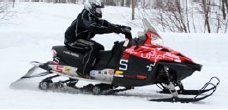
SAE’s Clean Snowmobile Challenge and UW Madison were both again successful! Congratulations to UW for capturing both titles, and our Michigan Tech team for taking second. “It came down to having a running sled the whole time,” said team captain Jacob Mauermann. “The warm weather made it difficult for everyone, so at the end of the day, it was about reliability as much as design.” The team focused on improving emissions in its internal combustion entry and on reducing noise in the battery-powered zero emissions snowmobile. “We built a brand-new zero emissions sled and switched to a direct drive belt,” said Mauermann, adding that the team tested the sled exhaustively before the competition.
Held at the University’s Keweenaw Research Center, the Clean Snowmobile Challenge is a collegiate design competition of the Society of Automotive Engineers. Engineering students from participating schools take a stock snowmobile and re-engineer it. Their aim: to reduce emissions and noise while maintaining or boosting performance. The Challenge also has a division for battery-powered sleds. The zero emissions category is sponsored by the National Science Foundation, which uses electric snowmobiles while conducting research in pristine arctic locations.

SAE’s Clean Snowmobile Challenge and UW Madison were both again successful! Congratulations to UW for capturing both titles, and our Michigan Tech team for taking second. “It came down to having a running sled the whole time,” said team captain Jacob Mauermann. “The warm weather made it difficult for everyone, so at the end of the day, it was about reliability as much as design.” The team focused on improving emissions in its internal combustion entry and on reducing noise in the battery-powered zero emissions snowmobile. “We built a brand-new zero emissions sled and switched to a direct drive belt,” said Mauermann, adding that the team tested the sled exhaustively before the competition.
Held at the University’s Keweenaw Research Center, the Clean Snowmobile Challenge is a collegiate design competition of the Society of Automotive Engineers. Engineering students from participating schools take a stock snowmobile and re-engineer it. Their aim: to reduce emissions and noise while maintaining or boosting performance. The Challenge also has a division for battery-powered sleds. The zero emissions category is sponsored by the National Science Foundation, which uses electric snowmobiles while conducting research in pristine arctic locations.
The University of Wisconsin-Madison’s internal combustion sled received the Gage Products Award for Best Fuel Economy, the AVL Award for Best Emissions, the Sensors Inc. Award for Lowest In-Service Emissions and the BlueRibbon Coalition Award for Most Practical Solution. Its battery-powered entry received the SAE Award for Best Design in the zero emissions category.
Michigan Tech’s snowmobile took second place in the internal combustion category, equaling last year’s finish. It also received the SAE Award for Best Design in the internal combustion category, the Land and Sea Award for Best Performance and the Altair Engineering Award for Design Simulation. “We did lots of design and analysis, and it paid off,” said team captain Josh Ball. “Everything we designed held up pretty well for us.”
Clarkson University’s zero emissions entry took second place in that category and also took the CH2M HILL Polar Service Range Event Award and the Keweenaw Research Center Draw Bar Pull Award.
The University of Idaho finished third in the internal combustion category, earning the International Engineering and Manufacturing (Woody’s) Award for Best Acceleration, the Polaris Industries Award for Best Handling and the DENSO Corporation Award for Best Ride.
The State University of New York at Buffalo finished fourth in the internal combustion category. The only diesel-powered sled in the Challenge, it took the PCB Group Award for Quietest Snowmobile, the Caterpillar Corporation Award for Innovation and the Aristo Catalysts Inc. Award for Most Improved Snowmobile.
Kettering University took fifth place in the internal combustion category.
McGill University finished third among the zero emissions sleds.
The University of Minnesota-Duluth received the Hawk Technology Safety Award.
The A&E Inc. Tools and Ken Cook Publications Award for Serviceability was given to the South Dakota School of Mines and Technology.
Newcomer North Dakota State University received the Rookie of the Challenge Award.
And the University of Wisconsin-Platteville team members were honored with the Bill Paddleford Founder’s Award for Most Sportsmanlike Conduct for the help they provided to North Dakota State’s team during its first year at the Challenge.
None of the Clean Snowmobile Challenge events had to be cancelled, despite an early spring thaw and temperatures that occasionally soared into the 60s. Saturday’s handling and acceleration events were held on a raised track that was assembled for the occasion. “We had guys picking up snow with a front-end loader and literally making a snow road,” said Jay Meldrum, co-director of the Challenge. “It’s amazing what they were able to do.”
William Predebon, chair of the mechanical engineering-engineering mechanics department and the Challenge’s other co-director, praised the efforts of the KRC staff in bringing the Challenge to a successful close. “No one else had any more snow than we did this year,” he said. “Without the efforts of these guys and without this facility, we couldn’t have pulled it off. They did a great job.”
Consider joining us next year, up at Houghton, MI. The Clean Snowmobile Challenge continues to grow each year in participation, as well as the value and significance of this initiative.
For details, videos and pics, go to http://www.mtukrc.org/snowmobile.htm
For the media release: http://www.mtu.edu/news/stories/2010/march/story24850.html
March 2010 Chairman’s Note
Dear Members and Section Friends,
The snow is melting fast this time of year! Don’t miss your chance to participate in the clean snowmobile challenge (CSC) competition March 15th – 20th in Houghton, MI. Find out more information on the CSC by visiting
http://students.sae.org/competitions/snowmobile/.
The May family night section meeting is scheduled for May 20th at Hiller Ford in Franklin, WI. The meeting will have a race theme and we are looking for your vehicles to proudly display. Please contact Dale Wiza (414-807-9663) if you would like to bring a vehicle.
Dear Members and Section Friends,
The snow is melting fast this time of year! Don’t miss your chance to participate in the clean snowmobile challenge (CSC) competition March 15th – 20th in Houghton, MI. Find out more information on the CSC by visiting
http://students.sae.org/competitions/snowmobile/.
The May family night section meeting is scheduled for May 20th at Hiller Ford in Franklin, WI. The meeting will have a race theme and we are looking for your vehicles to proudly display. Please contact Dale Wiza (414-807-9663) if you would like to bring a vehicle.
The MSOE student chapter is heading to the annual SAE Detroit Section Student Exhibit Competition to represent their new Formula Hybrid Team. The Milwaukee Section will be sponsoring their journey to help their chapter activities proliferate. The MSOE chapter will provide a summary of their experience during the May Section meeting.
This coming month, the nomination committee will be presenting the slate of officers for this coming year. We are always looking for leadership and contributing talents. We are currently seeking a replacement Treasurer and Secretary positions. You will be mentored for any position you choose, plenty of support is waiting for you!
I thank you for your continued support of the SAE Milwaukee Section. Your participation at Section meetings valued and appreciated. Please send me any comments/ideas you have that can improve Milwaukee Section for everyone.
Best regards,
Jim Ryan
Chairman – Milwaukee Section
Recap of February Section Meeting
Our February meeting shared two innovative and different companies and presentations, along with a tour from Friction Stir Link. The tour and demonstration of the friction stir process offers opportunity for manufacturers and fabricators to create a weld in aluminum that is more consistent, cleaner and stronger than other any other method, and the only process to satisfy the Navy’s demands for the their new Littoral Combat Ships, featuring the stealth design. The presentation by John Hinrich, owner of Friction Stir Link and Bruce Halverson, QA Mgr. of Marinette Marine was an informative compliment to how well they have pushed this technology forward together.
Tom Dougherty (Pres. of Monolith Engines) then shared his design, features and challenges of his new opposed-piston engine. Tom has invested many years to get to these prototypes, has now successfully been awarded necessary patents, and welcomed SAE Members to come along-side to mechanically help and improve his efforts. We want to thank and cheer-on these two Section companies!
March 2010 Section Meeting – Midwest Composite Technologies
Case Study

Wednesday, March 24th, 2010
Hartland, Wisconsin

The staff at Midwest Composite Technologies is opening their doors to SAE members and guests. Their facility tour will showcase a diverse portfolio of manufacturing processes and capabilities for proof of concept prototype to short run and low volume production. The tour is expected to take more than 1 hour. See many processes in action and understand their capabilities.
Following the tour and dinner, Helmut Keidl and his staff will outline the process to make scale models through the full size “Case Study”.
Case Study

Wednesday, March 24th, 2010
Hartland, Wisconsin

The staff at Midwest Composite Technologies is opening their doors to SAE members and guests. Their facility tour will showcase a diverse portfolio of manufacturing processes and capabilities for proof of concept prototype to short run and low volume production. The tour is expected to take more than 1 hour. See many processes in action and understand their capabilities.
Following the tour and dinner, Helmut Keidl and his staff will outline the process to make scale models through the full size “Case Study”.

Over the past 25 years Midwest Composite Technologies, Inc. is home to some of the latest manufacturing technology available including: Rapid Prototyping, CNC Machining Centers, Injection Molding Machinery, RIM Presses and Design Software. Their customer base includes leaders in the medical, automotive, agricultural, marine, electrical and recreational industries.
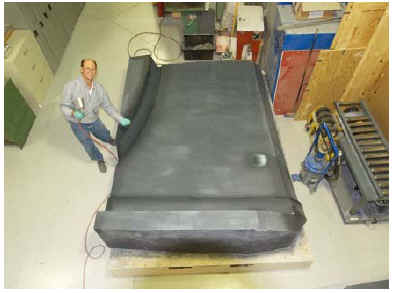
Their in-house tool design, molding, manufacturing capabilities, can offer internal control of a project’s requirements from beginning to end or anywhere in between. They can streamline a manufacturing process and deliver high quality, cost competitive, finished products with minimal lead times. They offer custom solutions varying from rapid prototyping, trade show or concept models, tooling or low to mid-volume production.
The Midwest spirit of innovation, and commitment to elevating standards for quality and service has contributed to progressive growth.
Biography: Helmut Keidl
Helmut is a German citizen who immigrated in the early 60’s when he was 11 years old. His parents, a janitor and cleaning lady, decide to move to Milwaukee. With a great deal of drive he started with a paper route which profited enough to buy a brand new 1967 Camaro. He graduated from John Marshall H.S. He later worked for Badger Patterns, Excalibur Automobiles, and Star Patterns which gave him the knowledge to begin his own company in 1975. He started in his garage on 57th and North Avenue; plastic stains can still be seen in the alley in front of the garage. He moved to the Hartland area in 1978 and moved to the current building 1 ½ years ago.

Registration: Only pre-payments made with a charge card can be completed online via www.milwaukeesae.com
Retirees, students and members without web access may register by phone on the SAE Registration Coordinator – Jim Ryan (262) 636-1634.
MAX ATTENDANCE for this event is 75.
Registration deadline: Monday, March 22, 12:00 p.m.
Directions to Midwest Composite Technologies
1050 Walnut Ridge Drive Hartland, WI 53029
From Milwaukee:
· I-94 West to Hy. 83 North
· North 2.3 Miles to Walnut Ridge Drive
· Right (east) on Walnut Ridge Drive 0.5 miles
From Madison:
· I-94 East to Hy. 83 North
· North 2.3 Miles to Walnut Ridge Drive
· Right (east) on Walnut Ridge Drive 0.5 miles
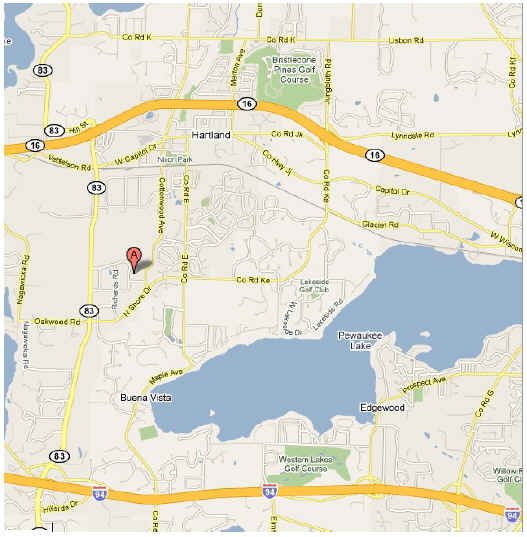
Registration deadline: Monday, March 22, 12:00 p.m.

March 2010 Newsletter – Midwest Composite Technologies
Link to March 2010 Newsletter



